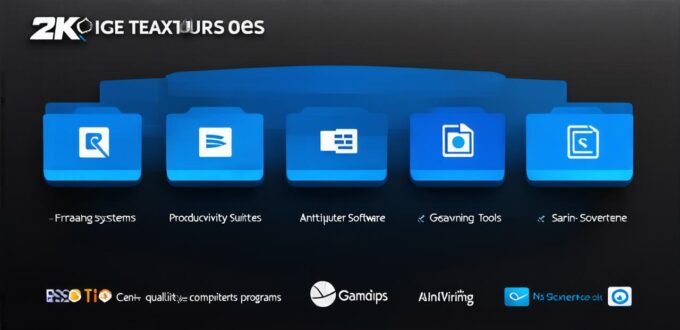Title: The Top 5 Types of Computer Software You Need to Know About
If you’re a software developer, you probably know about the vast array of computer software available. But do you know which ones are truly essential for your work? In this article, we will take a closer look at the top 5 types of computer software that every software developer should have in their toolkit.
1. Integrated Development Environments (IDEs)
An IDE is a software application that provides all the tools you need to write, edit, debug, and test code. IDEs are designed to streamline the development process and make it easier for developers to work together. Some popular IDEs include Visual Studio, Eclipse, and IntelliJ IDEA.
2. Version Control Systems (VCS)
A version control system (VCS) is a tool that allows you to track changes to your code over time. This is especially important when working with teams of developers, as it ensures everyone is working with the latest version of the codebase. Git and Subversion are two popular VCSs used by software developers.
3. Testing Frameworks
Testing frameworks provide a standardized way to write and run tests for your code. They make it easier to ensure that your code is working as expected, and can help you catch bugs early in the development process. JUnit and Selenium are two popular testing frameworks used by software developers.

4. Debugging Tools
Debugging tools help you identify and fix issues with your code. These tools can be integrated into your IDE, or standalone applications. Some popular debugging tools include Visual Studio’s Debugger, Eclipse’s Debug Console, and GDB (GNU Debugger).
5. Build Tools
Build tools automate the process of compiling and packaging your code. This can save you a lot of time and reduce the risk of errors. Maven and Gradle are two popular build tools used by software developers.
Summary
In conclusion, every software developer should have the top 5 types of computer software in their toolkit: Integrated Development Environments (IDEs), Version Control Systems (VCS), Testing Frameworks, Debugging Tools, and Build Tools. By using these tools, you can streamline the development process, catch bugs early, and ensure your code is working as expected.
